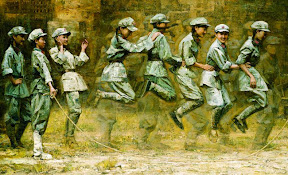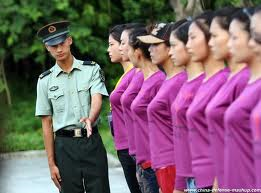Premier Wynne's 2014 Mandate Letter: Education is reprinted below. It is addressed to our Education Minister Liz Sandals. Ostensibly it is a vision statement for public consumption. It outlines 9 issues the Premier wants to focus on, including Collective Bargaining. Since our readers here are the teachers who will need to implement whatever results in our classrooms and schools, the letter is reprinted for your erudition, and Comments, using the link below. Here's the Letter:
September 25, 2014
Honourable Liz Sandals Minister of Education
Dear Minister Sandals:
I am honoured to welcome you back to your role as Minister
of Education. We have a strong Cabinet in place, and I am confident that
together we will build Ontario up, create new opportunities and champion a
secure future for people across our province. The people of Ontario have
entrusted their government to be a force for good, and we will reward that
trust by working every day in the best interests of every person in this
province.
As we implement a balanced and comprehensive plan for
Ontario, we will lead from the activist centre. We will place emphasis on
partnerships with businesses, communities and people to help foster continued
economic growth and make a positive impact on the lives of every Ontarian. This
collaborative approach will shape all the work we do. It will ensure we engage
people on the issues that matter the most to them, and that we implement
meaningful solutions to our shared challenges.
Our government’s most recent Speech from the Throne outlined
a number of key priorities that will guide your work as minister. Growing the
economy and helping to create good jobs are fundamental to building more
opportunity and security, now and in the future. That critical priority is
supported by strategic investments in the talent and skills of our people, from
childhood to retirement. It is supported through the building of modern
infrastructure, transit and a seamless transportation network. It is supported
by a dynamic business climate that thrives on innovation, creativity and
partnerships to foster greater prosperity. And it is reflected across all of
our government, in every area, and will extensively inform our programs and
policies.
As we move forward with our plan to grow the economy and
create jobs, we will do so through the lens of fiscal prudence. Our 2014 Budget
reinforces our commitment to balancing the budget by 2017-18; it is essential
that every area adheres to the program-spending objectives established in it.
We will choose to invest wisely in initiatives that strengthen Ontario’s
competitive advantage, create jobs and provide vital public services to our
families. The President of the Treasury Board, collaborating with the Minister
of Finance, will work closely with you and your fellow Cabinet members to
ensure that our government meets its fiscal targets. The President of the
Treasury Board will also lead the government’s efforts on accountability,
openness and modernization as we implement new accountability measures across
government.
As Minister of Education, your top priority will be
implementing Achieving Excellence: A Renewed Vision for Education in Ontario.
This plan will take public education in Ontario from great to excellent by
continually improving learning, so that young people have the talent and skills
they need — and are prepared to lead in the global economy.
Ontario’s publicly funded education system is acknowledged
as one of the best in the world. I ask that you build on this solid foundation
and continue to progress toward a responsive, high-quality and accessible
system that is integrated from early learning and child care through to adult
education.
By 2025, Ontario will have an education system that
seamlessly integrates services from early years to adulthood. Ontario will be a
world leader in higher-order skills — such as critical thinking and problem
solving — which will allow Ontario to thrive in the increasingly competitive
global marketplace.
Your ministry’s specific priorities include:
Moving Forward on Child Care and the Early Years
- Building
on the successful implementation of full-day kindergarten, which will be
fully implemented this year. As outlined below, you will continue to work
with school boards, municipalities, First Nations, child care operators
and parents to modernize, stabilize and strengthen the child care system
and improve oversight.
- Overseeing
the implementation of legislative and regulatory changes through the Child
Care Modernization Act, 2014, if passed.
- Creating
Best Start Child and Family Centres by integrating and transforming
existing family support programs.
- Ensuring
that children have the opportunity to benefit from the continued
integration of child care, early years and the education system.
- Working
with the Minister of Tourism, Culture and Sport to develop options to
support the implementation of high-quality before- and after- school
programming for 6 to 12 year-olds through school boards or a third party.
Implementing the Renewed Vision for Education
- Working
with our education sector partners to, as detailed below, achieve the four
renewed goals for education in Ontario outlined in Achieving Excellence: A
Renewed Vision for Education in Ontario. This will require taking
evidence-based actions informed by broad collaboration. Your plan will
result in a high-performing education system with engaged educators,
supportive staff, and administrative and other professionals who are
committed to continuous learning.
Achieving Excellence
- Working
to ensure that students graduating from high school are ready to meet the
opportunities and challenges of tomorrow’s economy and society. Children
and students of all ages will achieve high levels of academic performance,
acquire valuable skills and demonstrate good citizenship.
- Supporting
educators in learning so they will be recognized as among the best in the
world. You will lead efforts to modernize and expand teacher education
into a two-year program, starting in September 2015. The modernized
program will include mandatory content that will better prepare teachers
for the classrooms of today and tomorrow. That content would include
topics such as: using technology in the classroom, literacy and numeracy,
mental health and addictions, safe schools, First Nation, Métis and Inuit
education and special education.
- Continuing
to measure progress toward an 85 per cent five-year high school graduation
rate and a 75 per cent success rate on elementary Education Quality and
Accountability Office assessments — with a particular focus on
mathematics. These results will continue to be reported publicly to ensure
transparency and accountability within the education system.
- Supporting
progress toward the above goals by investing $150 million over three years
in technology and learning tools such as new digital tablets, netbooks,
cameras, software and professional development for teachers. You will also
look at new and innovative ways to increase support that improves student
performance in math, science and technology, such as new supports and
resources for the classroom. These will include new learning opportunities
in mathematics for educators, and supporting access to TVO’s Homework
Help, which provides students with free, real-time math tutoring by
certified Ontario teachers.
Election 2014: Premier Wynne now has 4 years of majority government to implement her plans.
Ensuring Equity
- Inspiring
all children and students to reach their full potential, with access to
rich learning experiences that begin at birth and continue into adulthood.
- Continuing
to focus on closing achievement gaps for those groups that are at higher
risk of not succeeding in school — including Aboriginal students, children
and youth in care, students with special education needs and students new
to Canada.
- Ensuring
equity by supporting students through transition periods that we know pose
challenges: when students enter kindergarten; when they make the
transition to Grade 1; when they move from elementary to secondary school;
when they move from secondary school to postsecondary education or the
world of work; and when they move between schools or communities.
- Supporting
students through transitions unique to each student’s circumstances. For
example, a youth in care may be transitioning between parents or
guardians, and may be changing schools at the same time. Some Aboriginal
students may be transitioning from on-reserve schools to the provincial
school system. You will recognize these challenging transitions and work
collaboratively — both within the education system and with broader public
sector partners — to ensure that all students, regardless of
circumstances, can be successful and supported.
- Working
with the ministers of Training, Colleges and Universities, and of
Citizenship, Immigration and International Trade to ensure the adult
education system better supports adult learners in their efforts to finish
high school, and successfully transition to postsecondary education,
training or the work place.
Promoting Well-Being
- Ensuring
that all children and students develop enhanced mental and physical health
and a positive sense of self and belonging. Building on your work to
promote equitable, inclusive and accepting school climates.
- Working
with partner ministries to support a long-term goal for children and youth
to have access to 60 minutes of activity connected to their school day,
and for students to learn from an up-to-date health and physical education
curriculum.
Enhancing Public Confidence
- Ensuring
that Ontarians continue to have confidence in a publicly funded education
system that helps develop new generations of confident, capable and caring
citizens.
- Working
with school boards to better prepare students for the workforce by
providing Grade 7 to 12 students with access to their own online career
planning tool and adjusting the current Grade 10 Careers curriculum. The
new tool will help students explore potential careers in a more hands-on
way — and support all teachers, including guidance counsellors, to better
prepare students for future careers.
- Working
with schools, school boards, guidance counsellors, and business and labour
in communities to increase experiential learning opportunities and to
identify people who can mentor students throughout school toward
apprenticeship and successful careers.
- Complementing the above initiatives by introducing a new Experience Ontario program to support paid community work and service. This program will be led by the Minister of Training, Colleges and Universities, who will also improve the availability of labour market information to help government, institutions, students, families and employers make important decisions about education, training and hiring. Your goal is to build on the success of existing programs to help students leave secondary school with a clear path for their initial postsecondary destination — be it apprenticeship training, college, Experience Ontario, university or the workplace.
- Continuing
to respect the collective bargaining process, as demonstrated by our
introduction and passage of the School Boards Collective Bargaining Act.
Collective bargaining enhances the ability of responsible employers and
bargaining agents to increase productivity, deliver services and ensure
fiscal sustainability. Any modest wage increases that may be negotiated
must be absorbed by employers within Ontario’s existing fiscal plan.
Investing in School Infrastructure
- Providing
over the next ten years more than $11 billion in capital grants to school
boards to continue building better places to learn and to support school
consolidations, including joint use projects.
Developing a Community Hubs Policy
- Using
some empty school space across the province for community resources — or
community hubs — that could be supported by creative partnerships. You
will work with the Minister of Health and Long-Term Care, the Minister of
Municipal Affairs and Housing and others to consult with stakeholders and
develop a policy that supports the development of community hubs. This
policy should consider the amount, location, value and nature of excess
space in the education system that could be used for novel purposes. You
will also work with the Minister of Municipal Affairs and Housing to consider
how to improve interactions between school boards and municipalities to
ensure effective land-use planning.
Liz: Anything else?!?
We have an ambitious agenda for the next four years. I know
that, by working together in partnership, we can be successful. The above list
of priority initiatives is not meant to be exhaustive, as there are many other
responsibilities that you and your ministry will need to carry out. To that
end, this mandate letter is to be used by your ministry to develop more
detailed plans for implementation of the initiatives above, in addition to
other initiatives not highlighted in this letter.
I ask that you continue to build on the strong relationships
we have with the Ontario Public Service, the broader public sector, and the
private, non-profit and voluntary sectors. We want to be the most open and
transparent government in the country. We want to be a government that works
for the people of this province — and with them. It is of the utmost importance
that we lead responsibly, manage spending wisely and are accountable for every
action we take.
I look forward to working together with you in building
opportunity today, and securing the future for all Ontarians.
Sincerely,
Kathleen Wynne
Premier
COMMENTS:
Premier
COMMENTS:










No comments:
Post a Comment